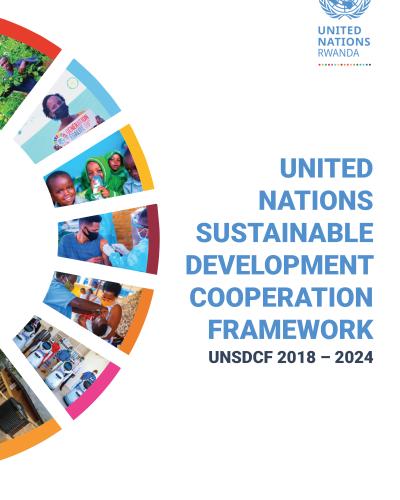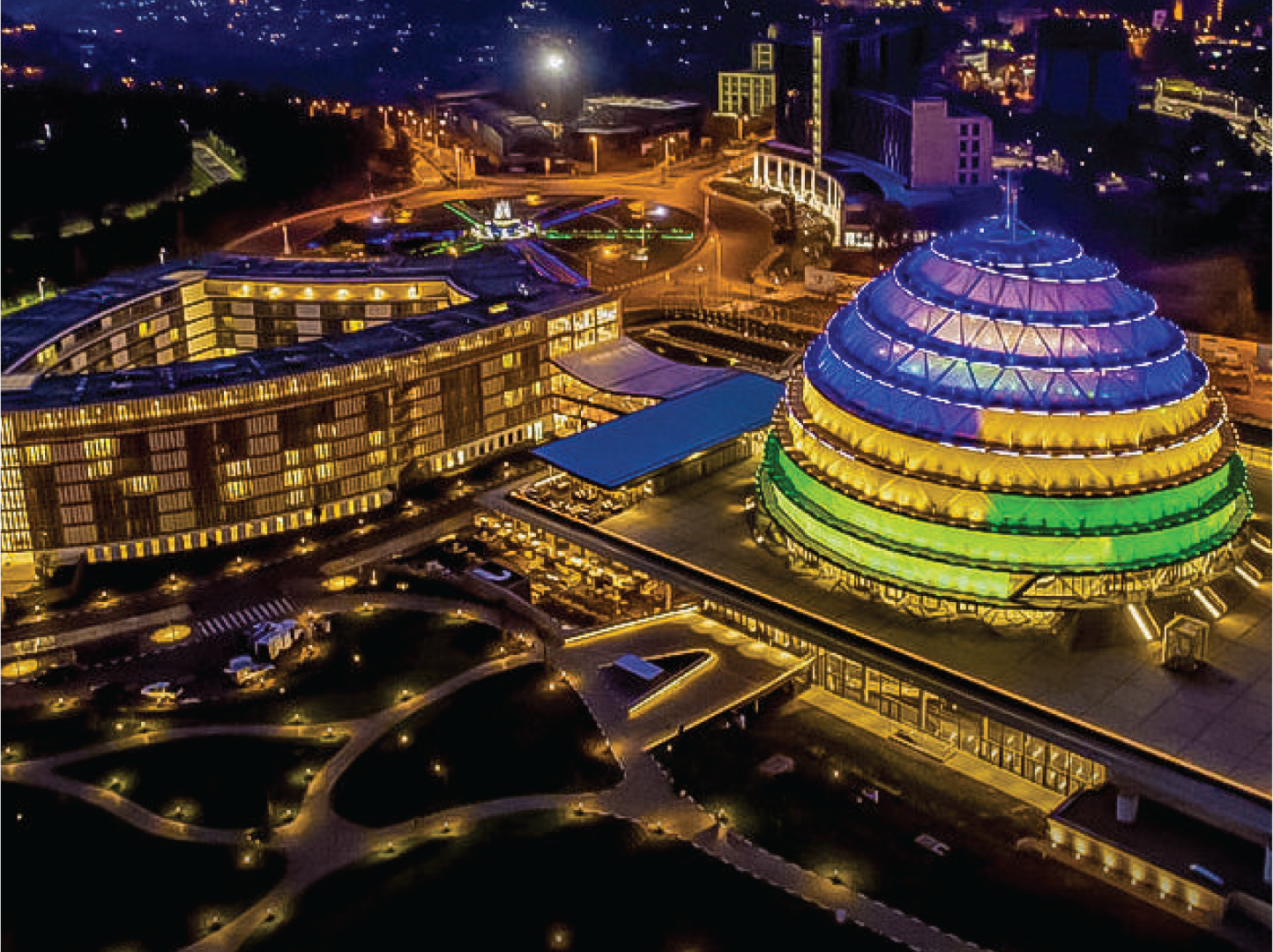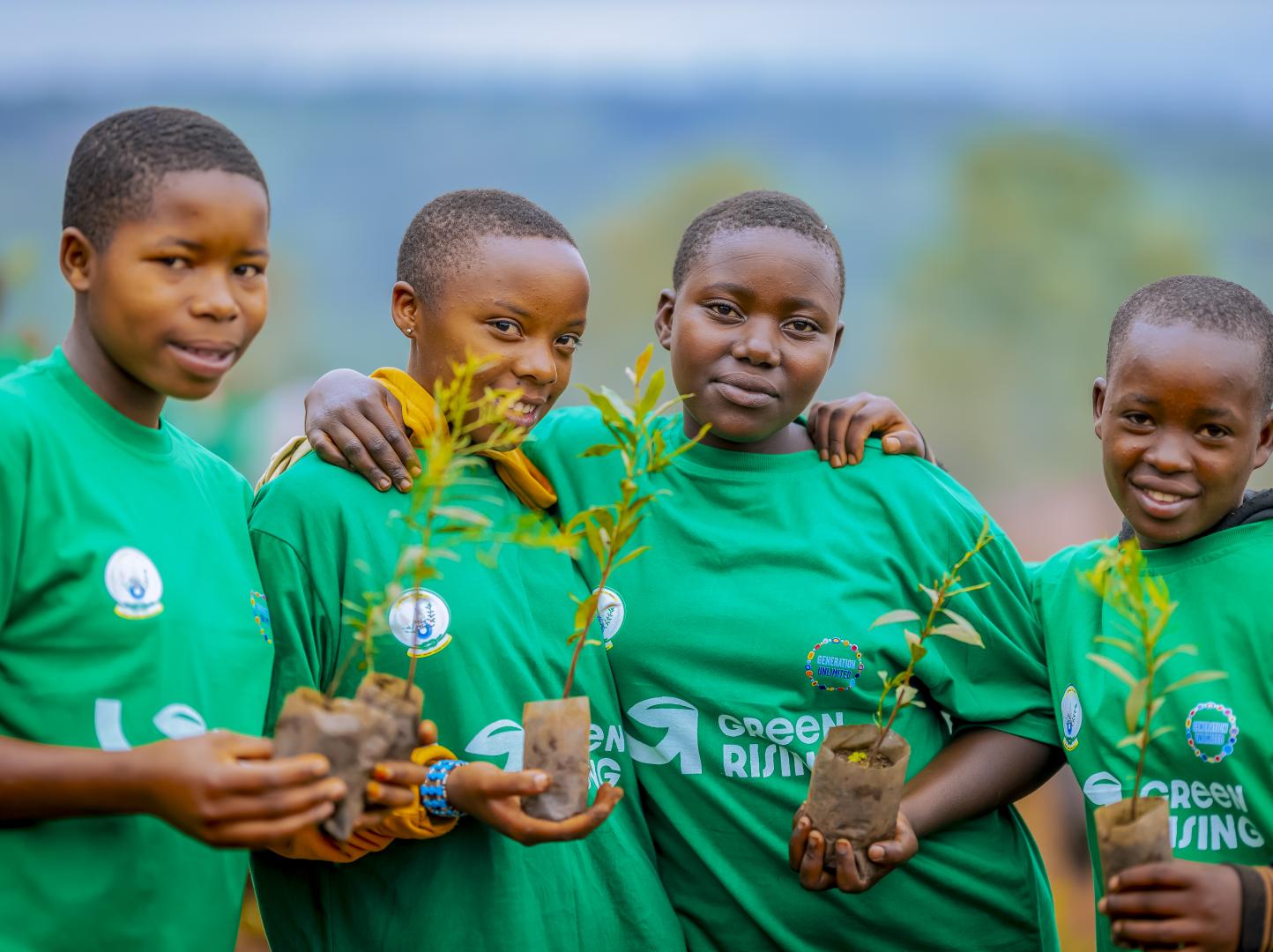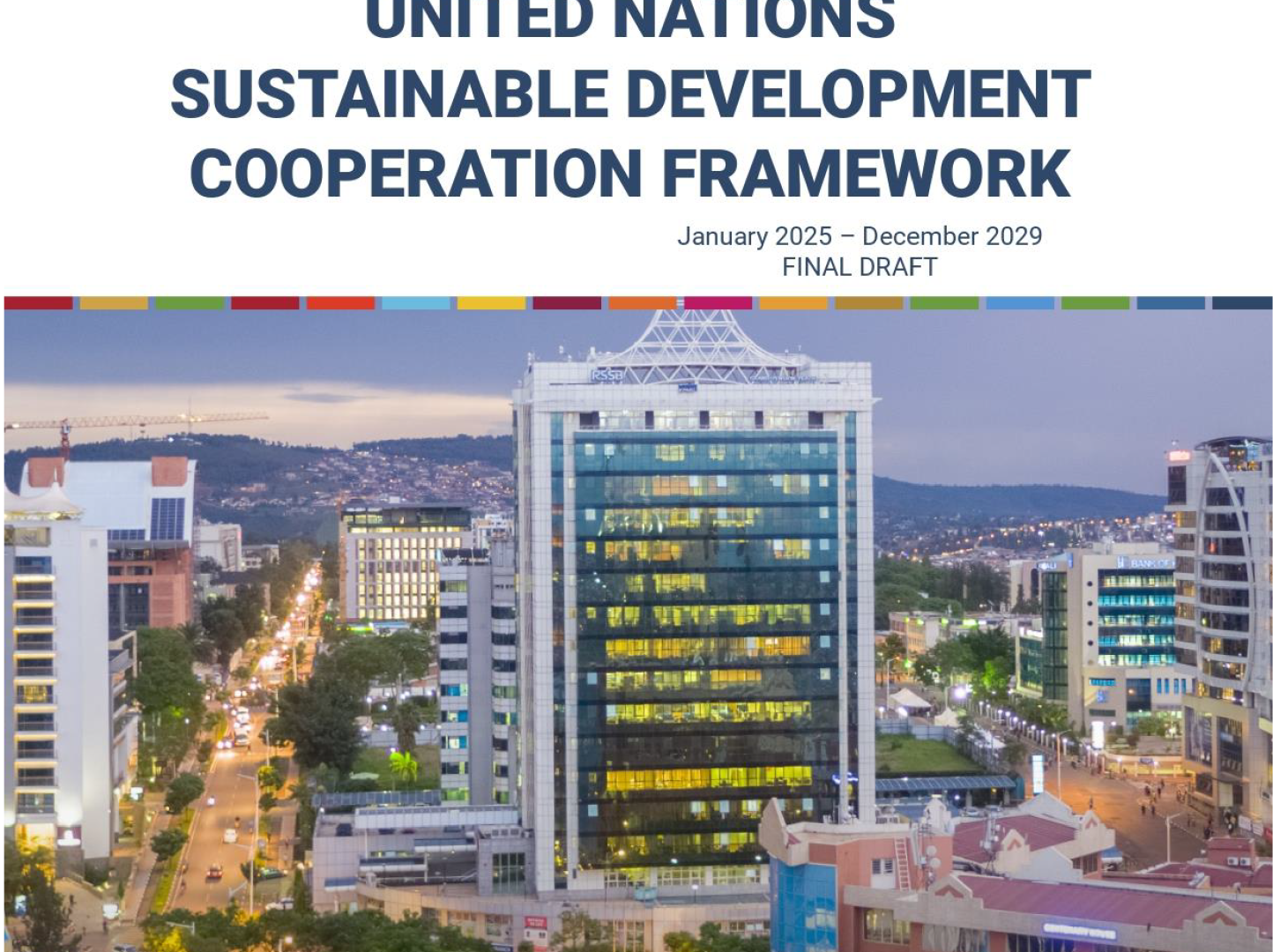UNITED NATIONS SUSTAINABLE DEVELOPMENT COOPERATION FRAMEWORK UNSDCF 2018 – 2024

“The United Nations strategically and effectively supports Rwanda to achieve inclusive, equitable and sustainable development and a high quality and standard of life for everyone.”
UNSDCF 2018 - 2024 OBJECTIVE
The United Nations Country Team is committed to supporting the Government of Rwanda towards the achievement of the National Strategy for Transformation (2017 – 2024) and Sustainable Development Goals’ targets, and promotion of regional integration, peace and security, by addressing Africa Union Agenda 2063 and East African Vision 2050. In this regard, the United Nations in Rwanda is committed to contributing towards resilient economic and social transformation of Rwanda underpinned by good governance, observance of human rights, justice, peace and security; gender equality and equity, effective participation in inclusive and sustainable economic development and decent job creation as well as equitable access to and utilization of quality basic social and protection services in a sustainable and climate-resilient ecosystem.
JOINT STATEMENT
In its resolution 72/279 of 31 May 2018, the United Nations General Assembly created a dedicated, impartial, independent, empowered, and sustainable development-focused coordination function for the United Nations Development System (UNDS). The United Nations Sustainable Development Cooperation Framework (UNSDCF) is the most important instrument for planning and implementation of development activities at the country level. The Framework is in line with Member States’ call for a United Nations development reform to boost coordination in supporting countries to achieve the 2030 Agenda.
This Joint Statement represents a collective agreement of the United Nations agencies in Rwanda, in support of the United Nations Sustainable Development Cooperation Framework for 2018-2024. The objective of the Joint Statement is to:
-
Ensure the most adequate, needs-based, demand-driven, and responsive configuration of support
to Rwanda in implementation of the 2030 Agenda and the collective promise to leave no one behind. -
Enhancecoordination,transparency,efficiency,andimpactofUnitedNationsdevelopmentactivities, aligned to Rwanda’s National Strategy for Transformation 2017 – 2024 (NST1).
The UNSDCF articulates the United Nations’ collective response to support the Government of Rwanda in addressing national priorities and gaps in the pathway towards meeting NST 1 and Sustainable Development Goals (SDGs) targets. The Cooperation Framework (CF) is a vehicle for supporting development and social transformation. It offers options to reframe economic policies and practices around resilience, sustainability for inclusive, diversified and job-intensive economic development, and promoting access to and utilization of basic social and protection services that advance gender equality, human rights and well-being of people in Rwanda, and protect the planet. The CF also promotes the spirit of partnerships that is at the core of the 2030 Agenda with strengthened focus on inclusion, advancing gender equality and women’s empowerment as well as tackling inequalities.
The Cooperation Framework seeks to support transformative governance by ensuring that national stakeholders are more accountable towards the people of Rwanda, in a context where respect for human rights and rule of law are recognised and adhered to. The CF tailors responses to national priorities, ensuring that all United Nations entities, whether present on the ground or not, can effectively support national implementation of the 2030 Agenda.
Under the leadership of the United Nations Resident Coordinator (RC), the United Nations Country Team (UNCT) in Rwanda carried out a consultative Common Country Analysis (CCA) in 2021 and Mid-Term Performance Review (MTPR) of the United Nations Development Assistance Plan 2018 – 2023 (UNDAP II) in 2021, that identified critical development areas and mapped out United Nations system capacities and resources that are required to effectively deliver on the Cooperation Framework.
The UNCT organized discussions on capacities and resources needed to provide support to Rwanda to implement results articulated in the Cooperation Framework. The United Nations development system in Rwanda is committed to harnessing its comparative advantages to support the Government and non-State actors in achieving NST1 and SDG targets while upholding core programming principles.




















